This event gathered 200-300 selected individuals from scientific and policy domains, focusing on intentional, diverse representation. It seeks to identify and agree on a joint roadmap. The gathering’s program was structured into three key sessions:
- Knowledge: Sharing expert panels’ ambitions, challenges, and demands.
- Intelligence: Interactive discussion on moving beyond fragmented intelligence.
- Action: Developing a joint roadmap for pooling collective intelligence.
Objectives:
- Prepare joint messaging from global scientific communities calling for pooling collective intelligence across the International Panels and Science-Policy Interfaces to effectively address the polycrisis and related challenges.
- Facilitate and activate connection and cooperation across International Panels and a diversity of science-policy interfaces, including cross feedback on reports, alignment on definitions, collective working groups, data-sharing, and joint reporting.
- Support learning communities of practice optimizing collective expertise, including both academic, local and indigenous knowledge, and science-policy interfaces at local, national and international levels and across scales, i.e. mobilizing global expert panels’ knowledge for action at local and national levels and local knowledge at national and global scales.
- Define how this community can better align and coordinate its collaboration to contribute to the UN International Decade of Sciences for Sustainable Development 2024-2033 and in global fora such as CFS and UN Conventions COPs.
- Increase the representation and participation of actors from the Global South and of multiple and diverse scientific disciplines and knowledge systems, notably indigenous and local knowledge and those of marginalized communities, to ensure that their voices, perspectives and realities are included.
Download the concept note – PDF 11 Mo # 5 p.
Extracts of the program:
18/03 Day 0 From Raising the Alarm to Saving the Planet: Science
Mobilizes
(recording forthcoming)
- Carlos ALVAREZ PEREIRA, Secretary General of The Club of Rome
- Akiko Suwa-Eisenmann, Chair of the High-Level Panel of Experts of the United Nations Committee on World Food Security (HLPE-FSN) - Exchange: How to make scientific knowledge
“actionable”? - Thomas Mettenleiter, Co-Chairman of the One Health High Level Expert Group (OHHLEP) - Health and sustainable development - Food and sustainable development
- Sandra Diaz, professor of ecology and one of the world’s top 1% researchers - Biodiversity and sustainable development
- Heide Hackmann, co-chair of a recent UN report on the links between climate change and the SDGs - Climate and sustainable development
- Elisabeth Claverie de Saint- MARTIN, President and CEO of CIRAD - Strengthening the interface between science and policy
- Conclusion: Lindiwe Sibanda, CGIAR System Board Chair
19/03 Day 1 From Knowledge to intelligence
Open & Welcome:
- Philippe Augé, President of the University Montpellier
- Lindiwe Sibanda, Chair of the CGIAR System Board
- Michaël Delafosse, President of Montpellier Méditerranée Métropole
- Jalil Benabdillah, Vice-president of Occitanie Region in charge of Economy, Employment, Innovation and Reindustrialization
Pooling Collective Intelligence for Action: the ambition / The challenge: building a connecting tissue across sectors, across scales and across knowledge systems
- Patrick Caron CGIAR System Board Vice Chair
- Fabrice DeClerck
- Amanda Harding
The Framing: a common starting point and shared ambition
Panel 1 Why knowledge makes a difference but still fails to meet the challenges of the Global South and raise Global South voices: role of science and diverse knowledge systems.
Panel 1 Why knowledge makes a difference but still fails to meet the challenges of the Global South and raise Global South voices: role of science and diverse knowledge systems.
- Moderator: Heide Hackmann Hackmann (University of Pretoria, South Africa)
- Ibrahim Assane Mayaki (African Union Special Envoy for Food Systems)
- Elisabeth Claverie de Saint Martin (CIRAD)
- Sandra Diaz (Conicet, Argentina)
Panel 2 Pooling collective intelligence: a disruptive imperative for transition, transformation, change and revolution a mixed panel of leading scientists and policy makers exploring the future looking PCI possibilities.
- Moderator: Gerda Verburg
- Denis Naughten (Inter-Parliamentary Union Science and Tech Working Group, Geneva)
- Mamphela Ramphele (Club de Rome)
- Stefanos Fotiou (Director, UN Food Systems Coordination Hub)
- Mercy Orina (University of Nairobi)
- Jonathan Vivas Aragon (Michigan State University)
- Preetmoninder Lidder (FAO) : The assets we have: expert intervention mapping science-policy-society interfaces (SPI) principles for collaboration, existing collaboration, and typologies
- Jim Skea (IPCC) - Orientation
- David Obura (IPBES) - Orientation
Interactive Fish Bowl
What is it going to take for collaboration across institutions scales, sectors, actors and knowledge systems to really move the dial on effective science-policy-society interfaces. What have we learnt so far, where can we do better and what does success actually look like? Expectations, barriers and enablers for cooperation and collaboration across scales, sectors, actors and knowledge systems… Crossing perspectives from civil society, government, UN bodies, private sector, and others.
- Moderator: Cargele Masso (CGIAR) Director, Environmental Health and Biodiversity Impact Area Platform
- Ajay Jakhar (BKS India)
- Barbara Burlingame (UN Food systems hub / SAC)
- Francisco Rosado-May (Universidad Intercultural Maya)
- Joao Campari (WWF)
Parallel working session #1
WHAT is working and not working in local/national spaces key to food systems transformation
Context, ambition and tone setting: Real life Use Case experiences integrating knowledge and action across scales, sectors and knowledge systems. Exploring expectations, barriers and enablers for cooperation and collaboration across scales, sectors, actors and knowledge systems. Topics illustrated by living use cases anchored in local and national action areas, where
knowledge communities are collaborating to strengthen real-life impact.
- National food system transformation pathways: Mexico, Vietnam
- National food system transformation pathways: Cambodia, Switzerland
- City food systems transformation: São Paulo, Montpellier
- Socio-ecological landscapes/territories: Occitanie (France),Tunisia (Pacte Project)
- Trade policy: OECD
- Consumers/citizens agency and action: Kenya, Costa Rica
Parallel working session #2
HOW knowledge systems integrate, contribute and participate. Building on the Use Cases to align on conditions and levers to catalyze the integration and use of knowledge across sectors, scale and knowledge systems, strengthening science-policy-society interfaces. Paying attention to ensure coherence across scales; capacity to assess collective cross-scale knowledge for agrifood systems transformation; data, information, and knowledge flows for learning across scales; coordination with Science-Policy Interfaces at all relevant scales.
PCI4A Champions:
Taking pooling collective intelligence to action Focus on options, proposals and their implications for pooling collective intelligence for action: key actions harvested from previous working sessions
Pitch & Panel #1
HOW knowledge systems integrate, contribute and participate. Building on the Use Cases to align on conditions and levers to catalyze the integration and use of knowledge across sectors, scale and knowledge systems, strengthening science-policy-society interfaces. Paying attention to ensure coherence across scales; capacity to assess collective cross-scale knowledge for agrifood systems transformation; data, information, and knowledge flows for learning across scales; coordination with Science-Policy Interfaces at all relevant scales.
20/03 Day 2 Interfaces in action: listening, challenging, committing
- Juan Lucas Restrepo, Global Director of Partnerships and Advocacy - Forward-looking actions for interrogation and commitment
- Ismahane Elouafi, Executive Managing Director - Wrap-up and commitments
Designing connections and proposing actions for more effective decision making across models, scientific communities, scientists and decision makers, sectors.
- Jim Woodhill (Foresight4Food)
- Elen Lemaitre-Curri (CIHEAM)
- Sebastien Treyer (IDDRI)
- Sylvie Avallone (Institut Agro)
- Eric Welch (ASU)
- Raina Plowright (Univ. Cornell)
- LeeAnne Jackson (OECD)
- Bill Moseley (Macalester College)
- Selim Louafi (CIRAD)
- Renaud dePlaan (IDRC)
- Hugo Rivera-Mendoza (Expertise France)
- Vanessa McBride (ISC)
Taking pooling collective intelligence to action Focus on options, proposals and their implications for pooling collective intelligence for action: key actions harvested from previous working sessions
Pitch & Panel #1
- Moderator: Jean-François Soussana (INRAE)
- Carlos Alvarez Pereira (Club of Rome)
- Cromwell Lukorito (IPCC)
- Karen Fabbri (European Commission)
- Patrick Okori (RUFORUM)
- Thomas Mettenleiter (OHHLEP)
- Jean-Luc Chotte (IRD)
Pitch & Panel #2
- Moderator: Joao Campari (WWF)
- Aggrey Agumya (FARA)
- Akiko Suwa-Eisenmann (HLPE-FSN)
- Belinda Reyers (University of Pretoria)
- Jaime Montoya (ISG – GSDR2023)
- Juan Lucas Restrepo (CGIAR)
- Ankitha Manohar (University of Leeds)
- Rodney Asilla (University of Pretoria)
Refining the Expert Panels and Science-Policy Interfaces joint message and ambition narrative: towards the 2024-2033 International Decade of Sciences for Sustainable Development
- Patrick Caron & Fabrice DeClerck
- Wrap up by Francois Pierrot (University of Montpellier) & Ismahane Elouafi (CGIAR)
20/03 Side event: CULTIVATING HEALTH & FOOD SOVEREIGNTY: CROSSROADS FROM FARM TO FORK
Dialogue on food sovereignty and health. Together, let’s cultivate a sustainable vision of agriculture. A bridge between earth, plate and future.
Names and roles of stakeholders/partners :
- Cécile Berthouly, Director of Research in Plant Agrobiodiversity, Institut de recherche pour le développement (IRD), DIADE
- Laurent Chevallier, doctor and nutritionist. Attached to the Montpellier University Hospital and in clinics.
- Adrien Kergueme, tractor-free intensive organic market gardener in Lecques (Gard)


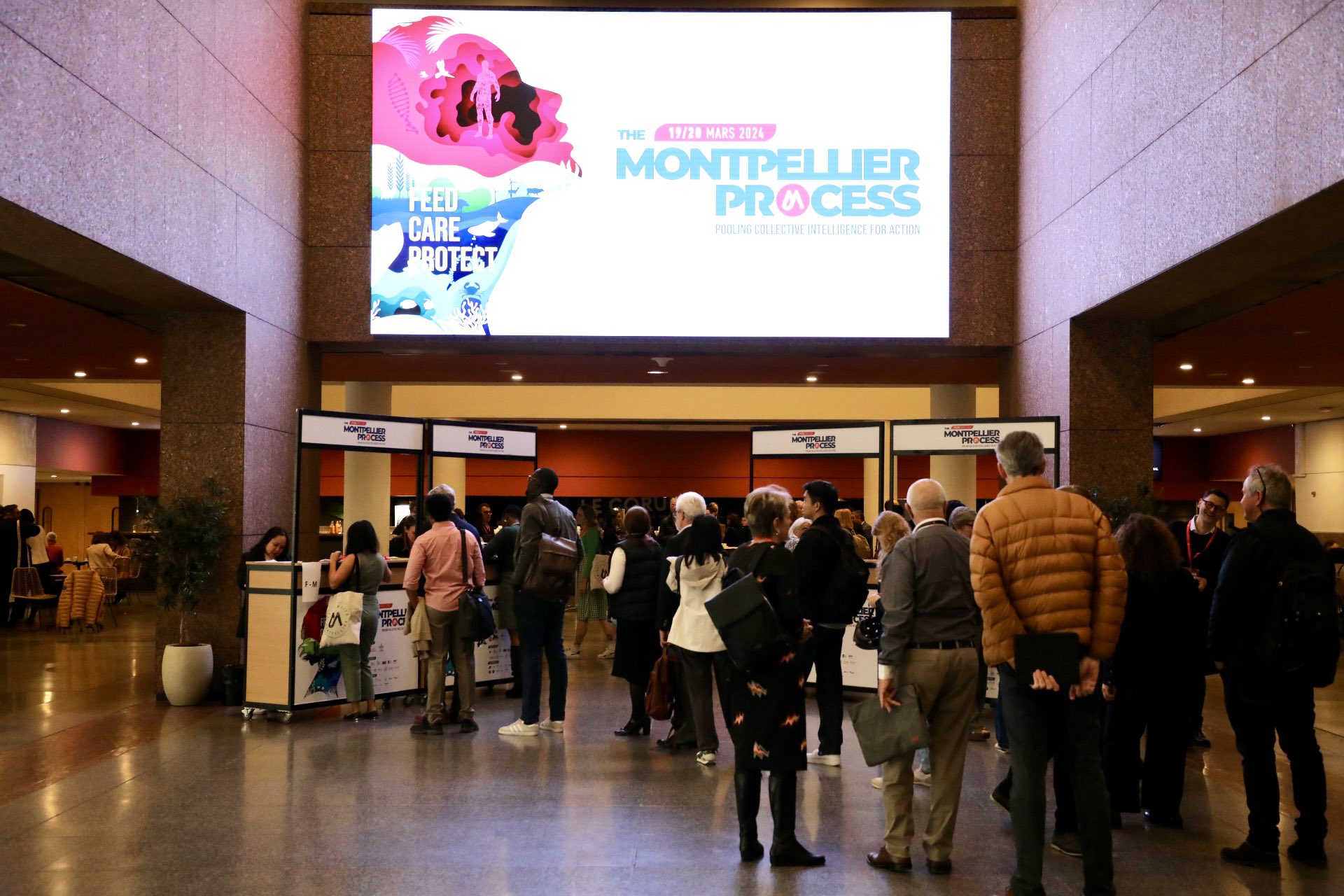
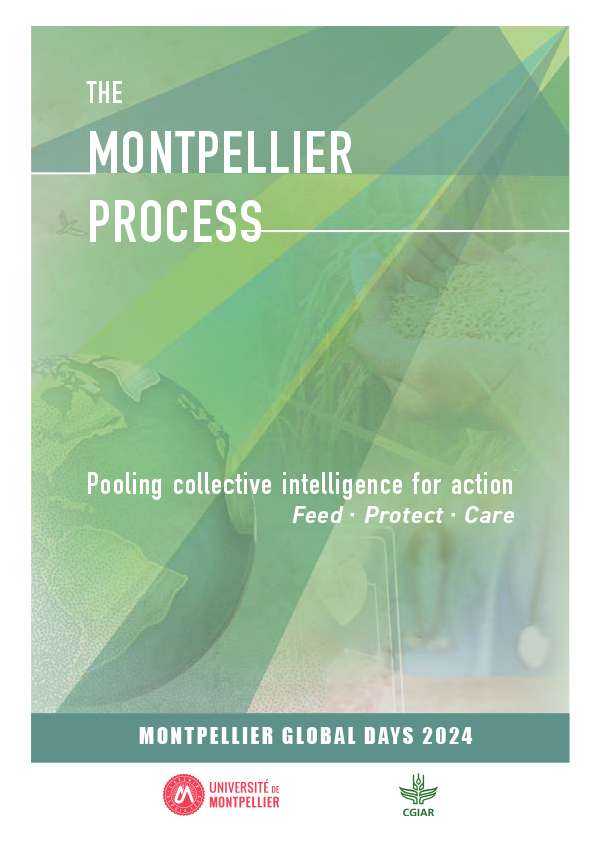
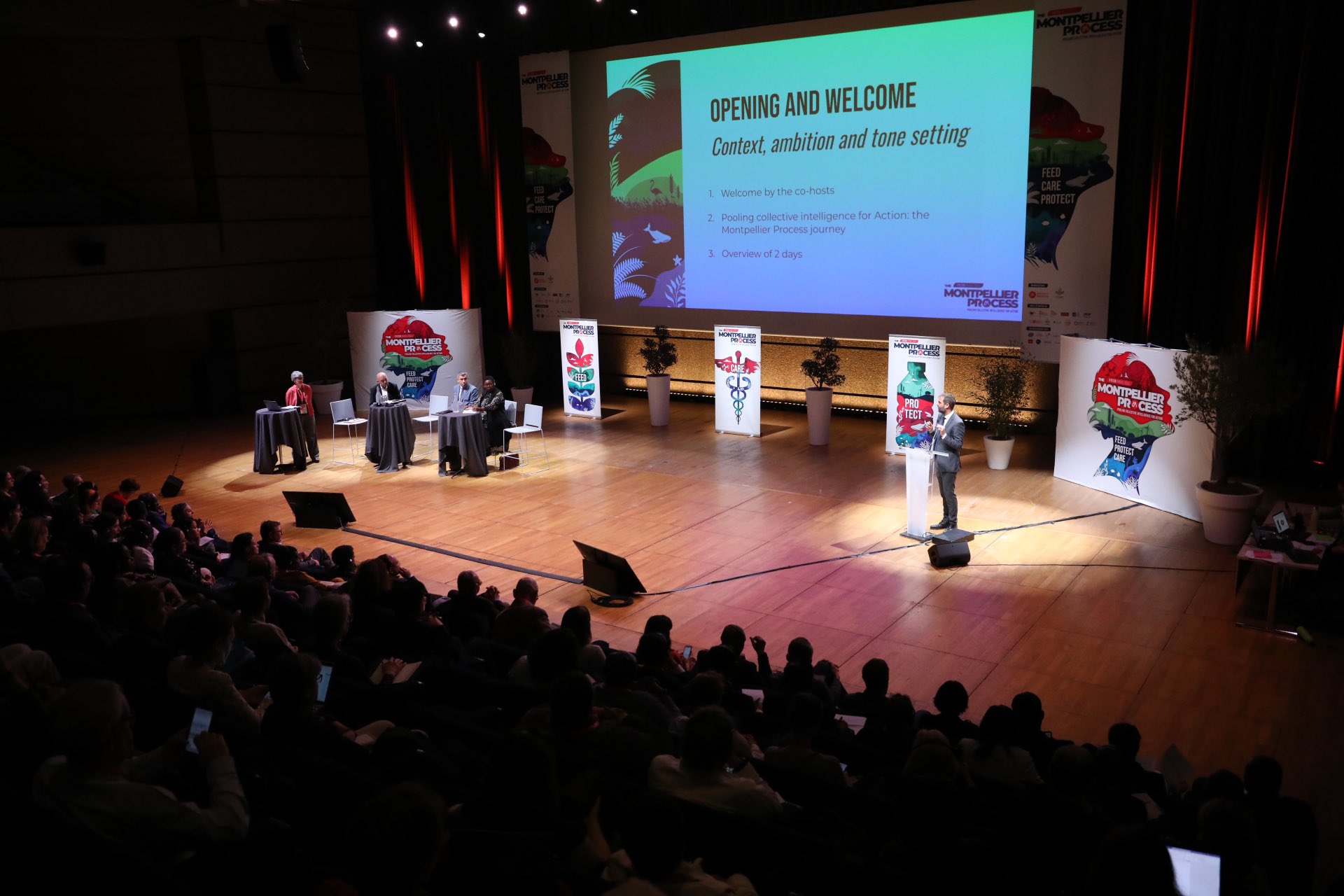
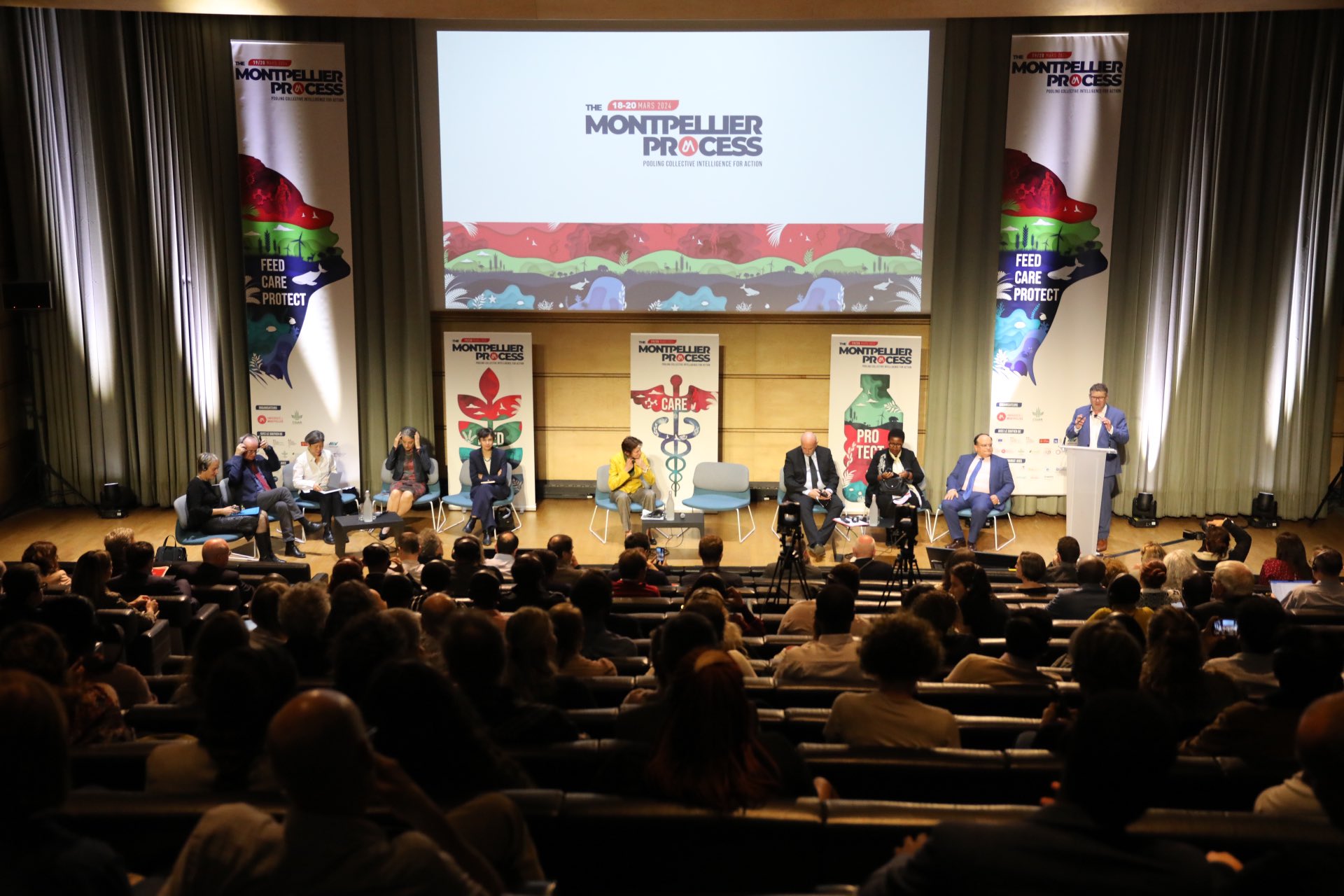
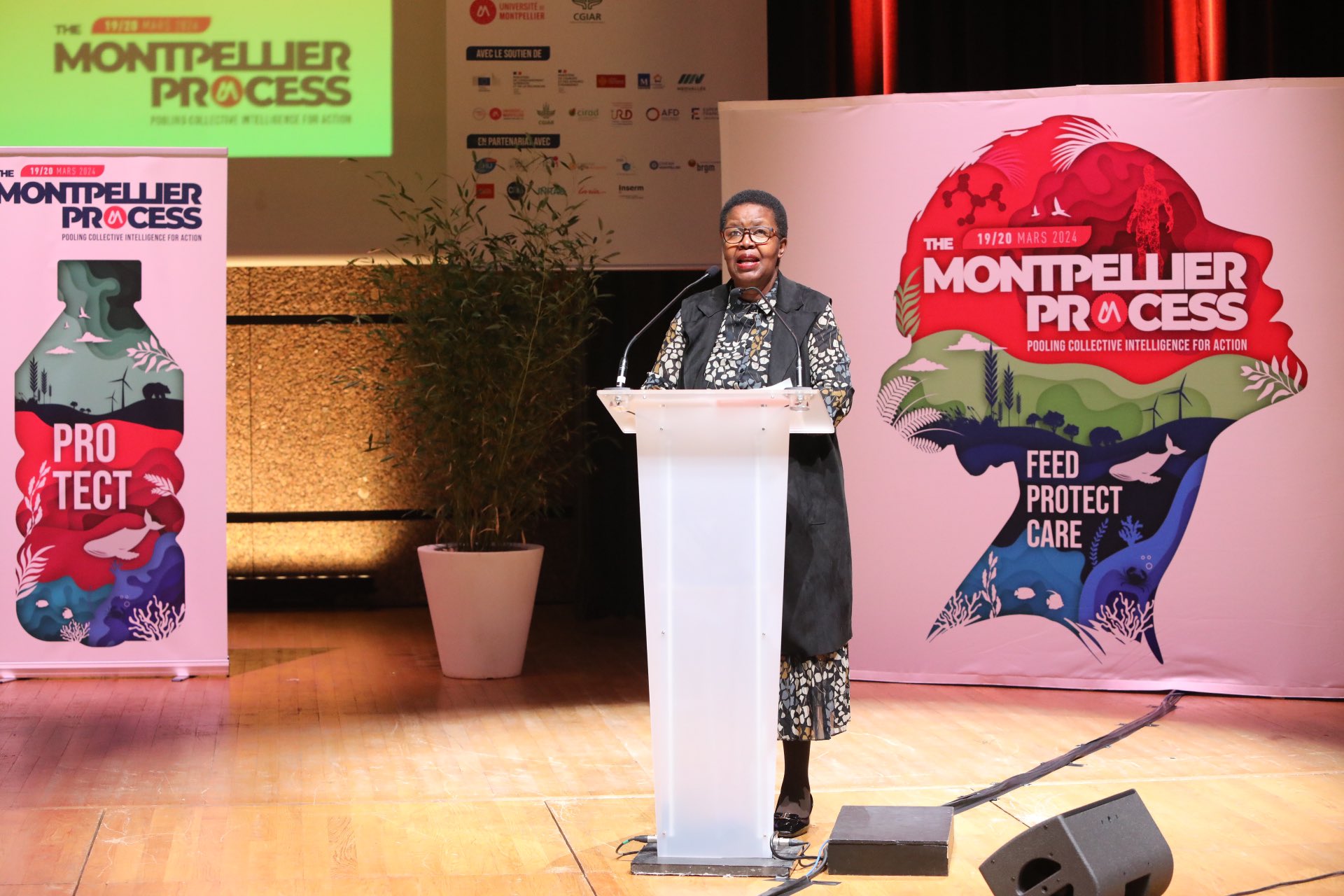
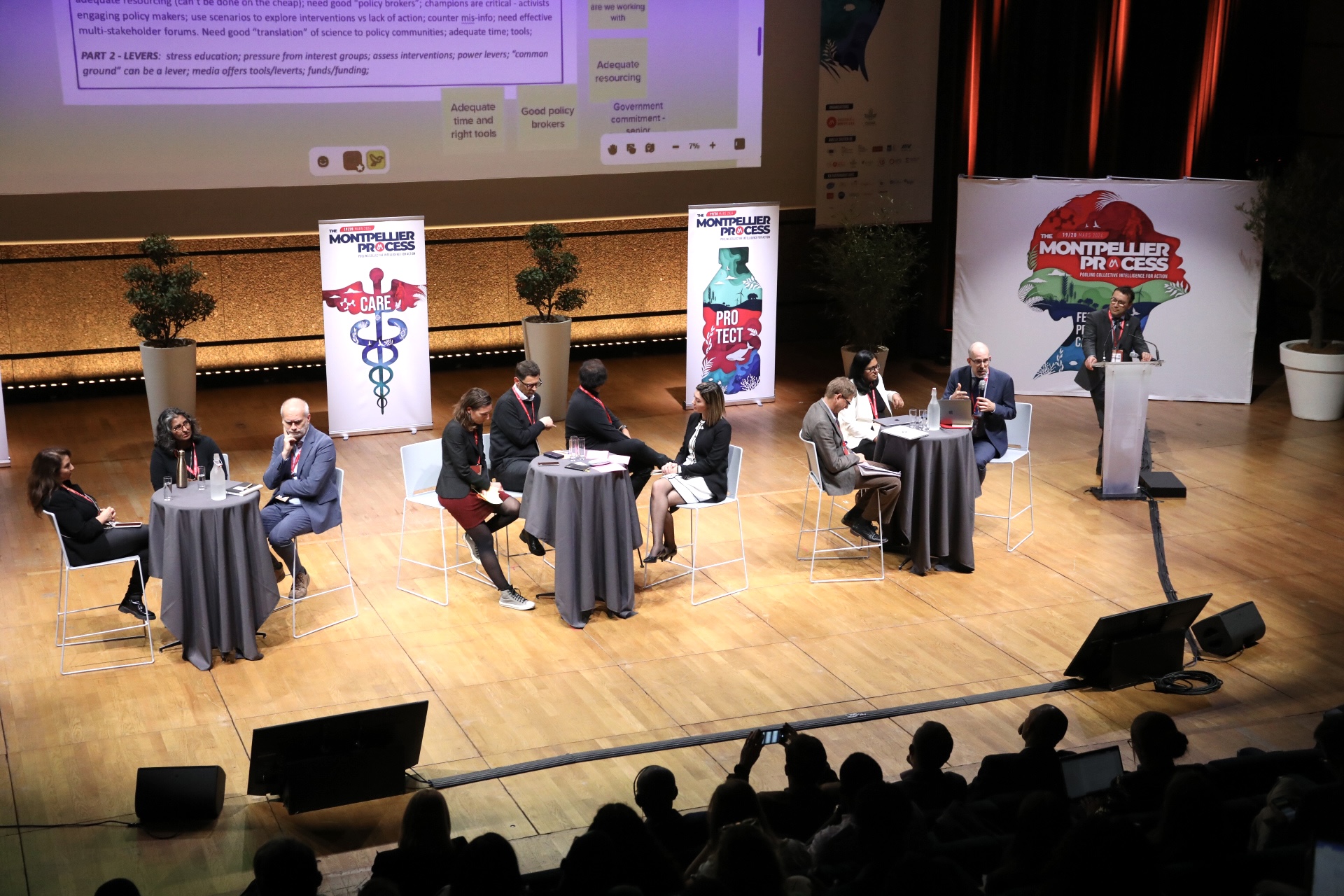
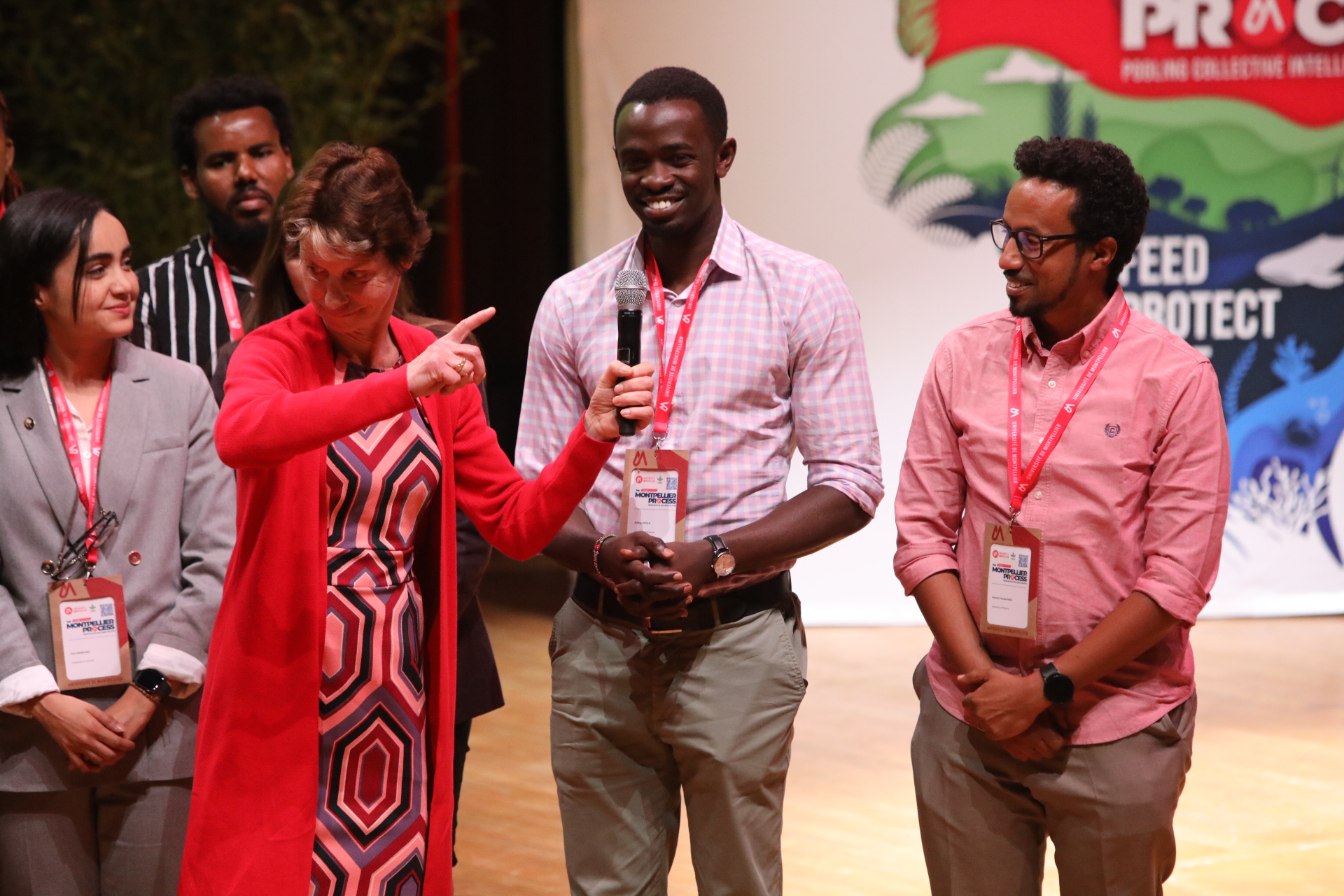

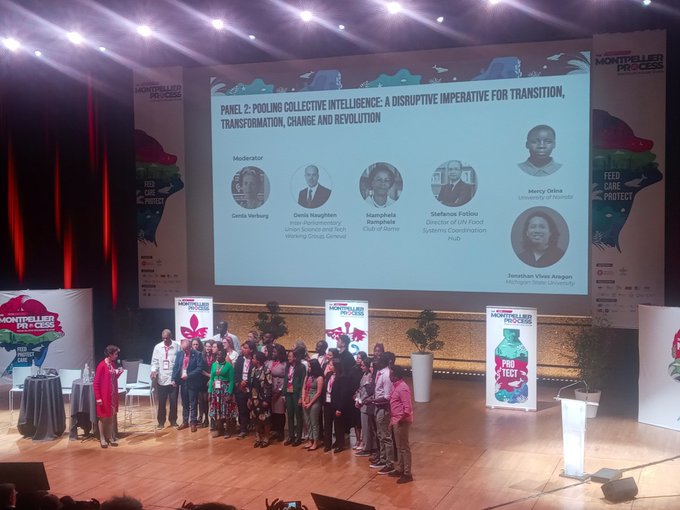
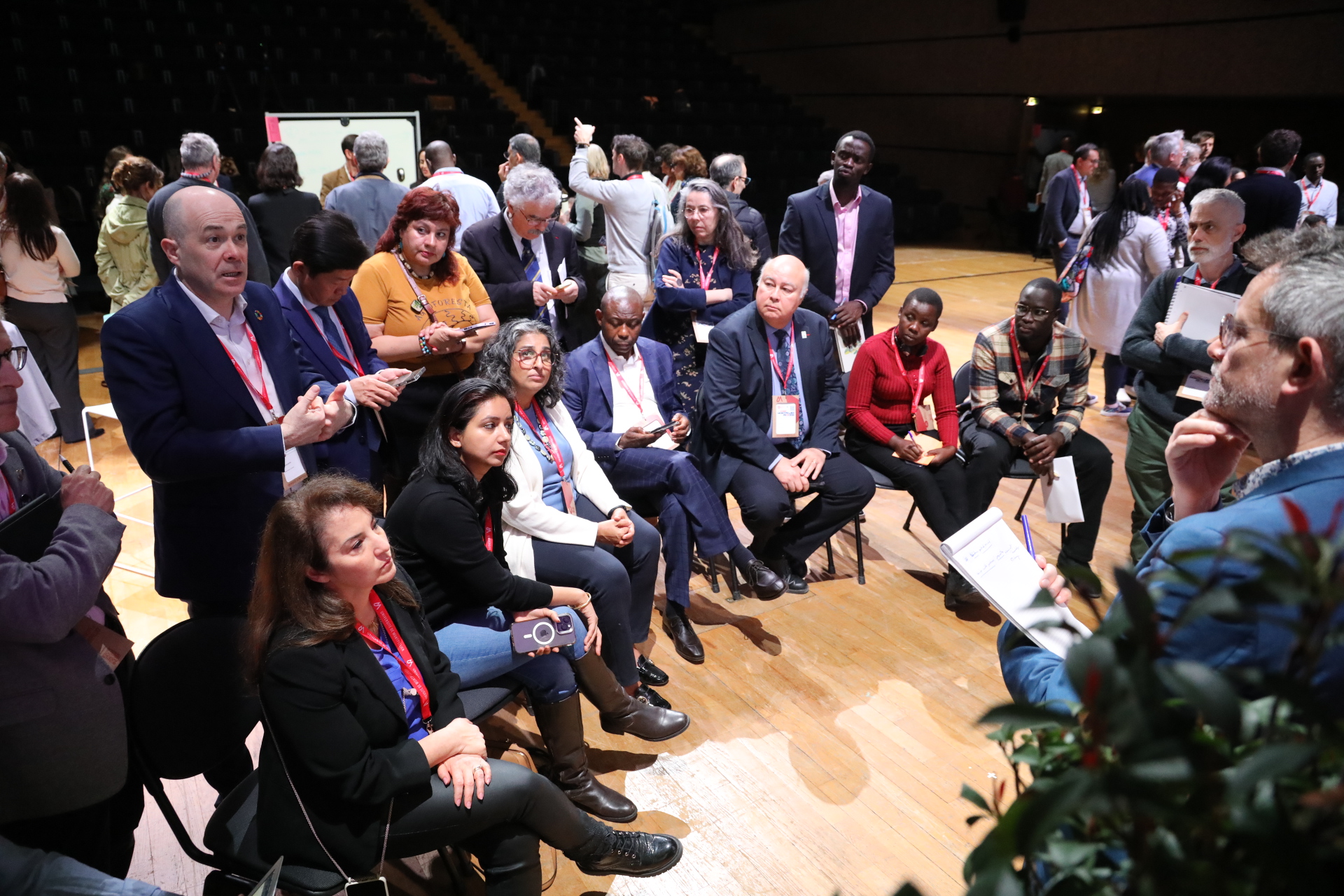
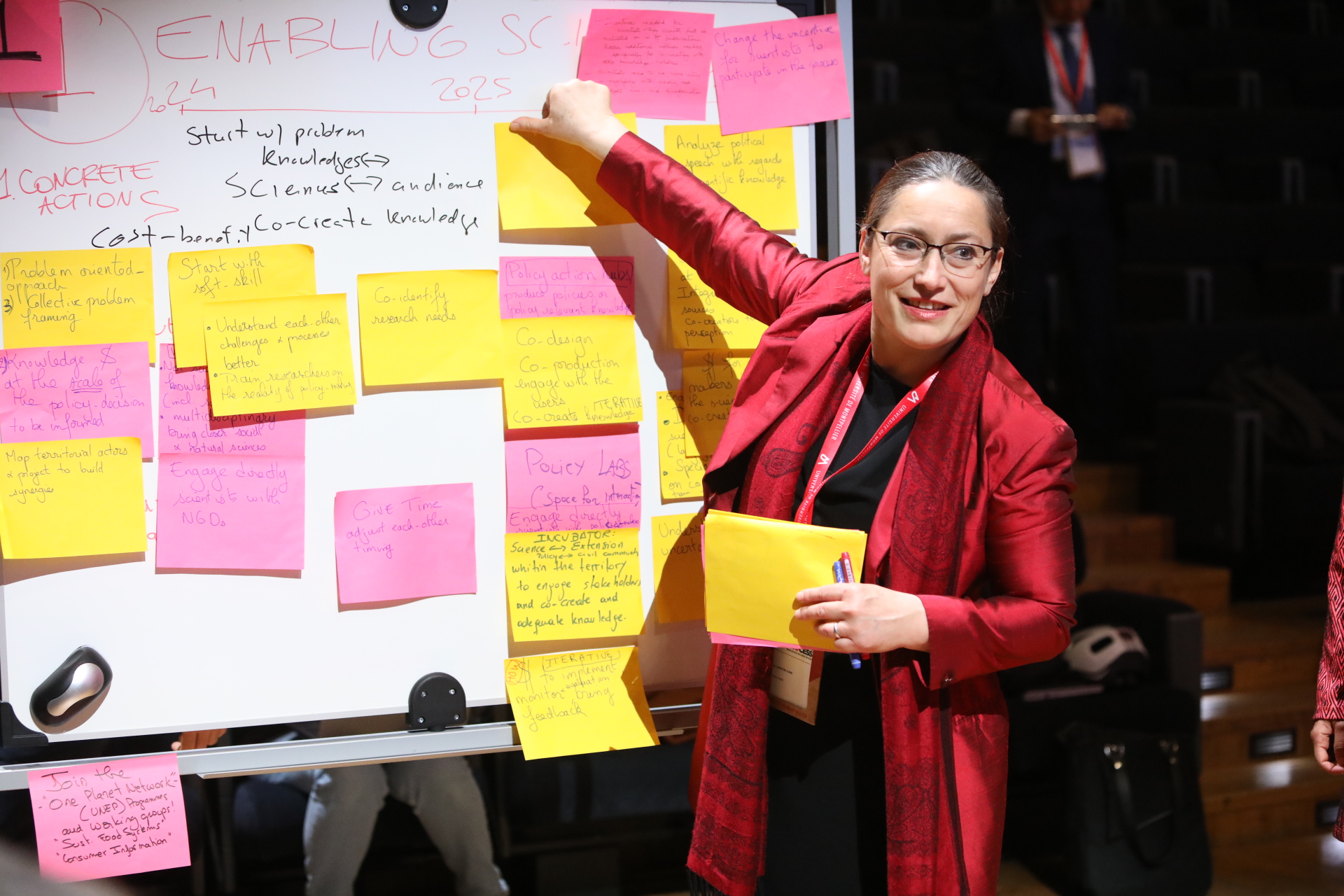
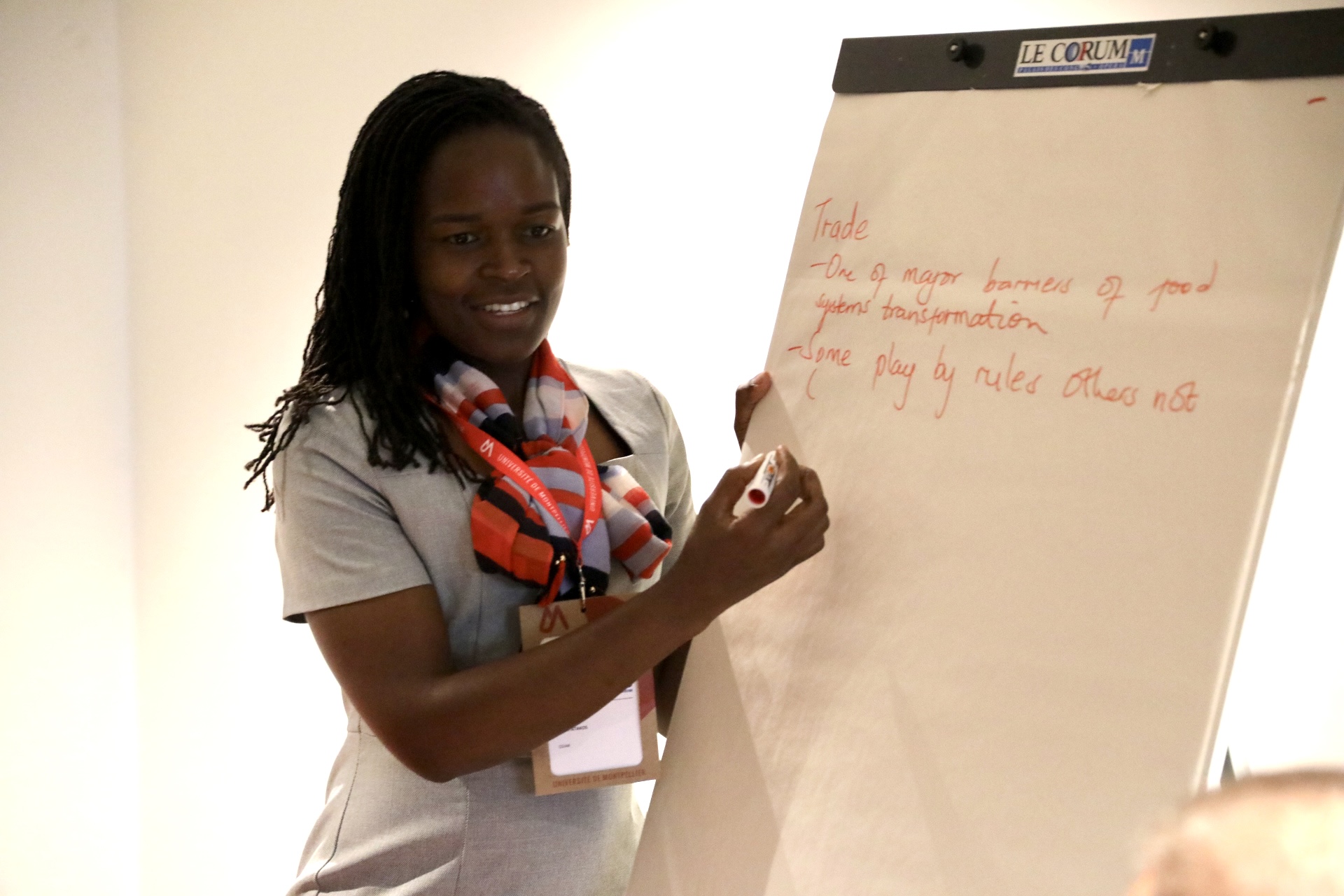
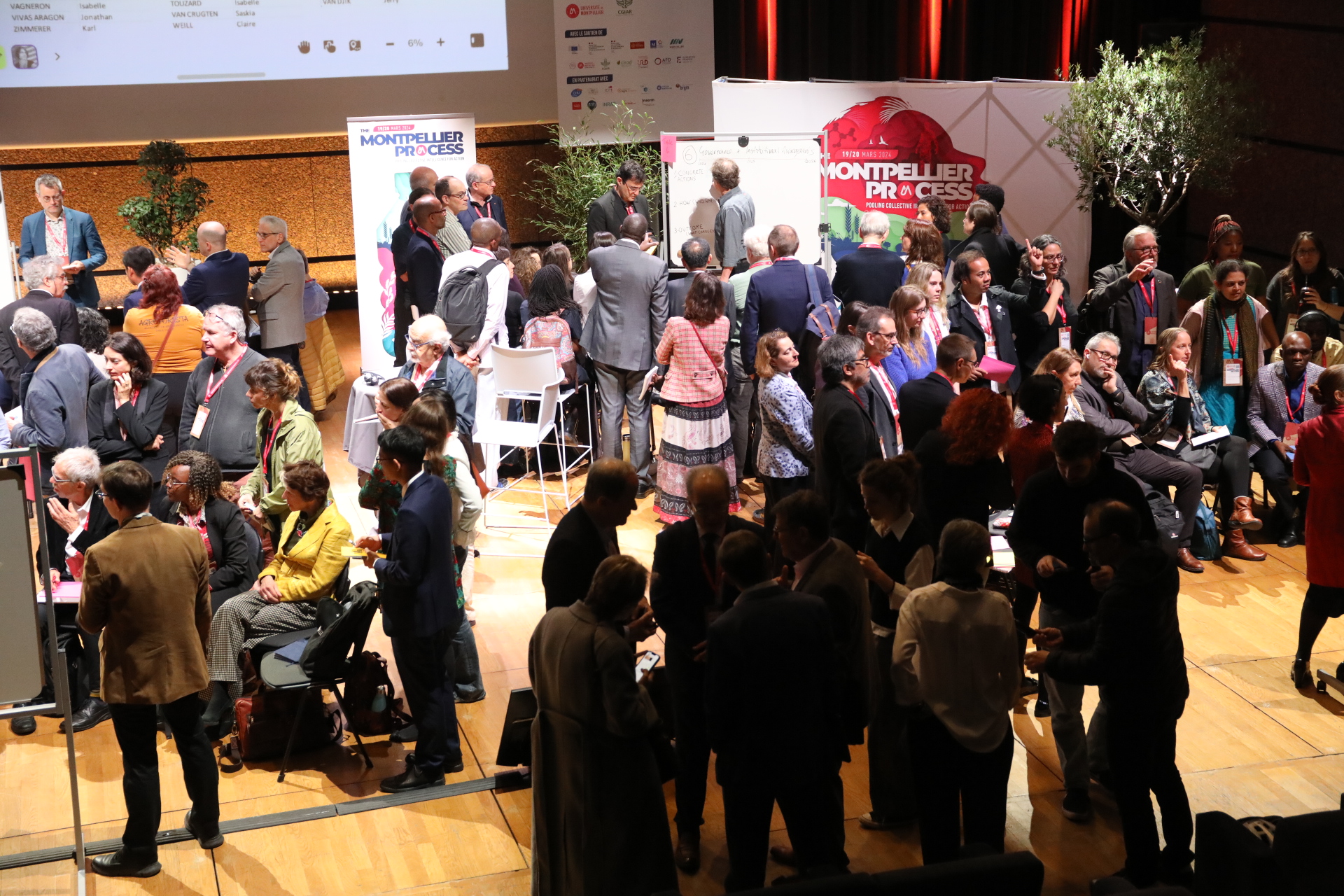
No comments:
Post a Comment